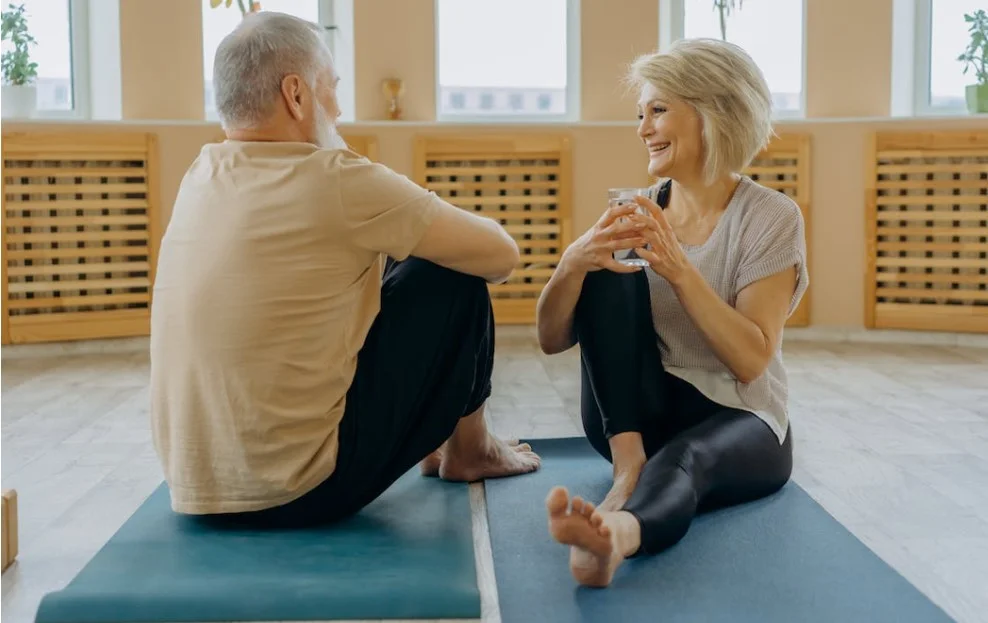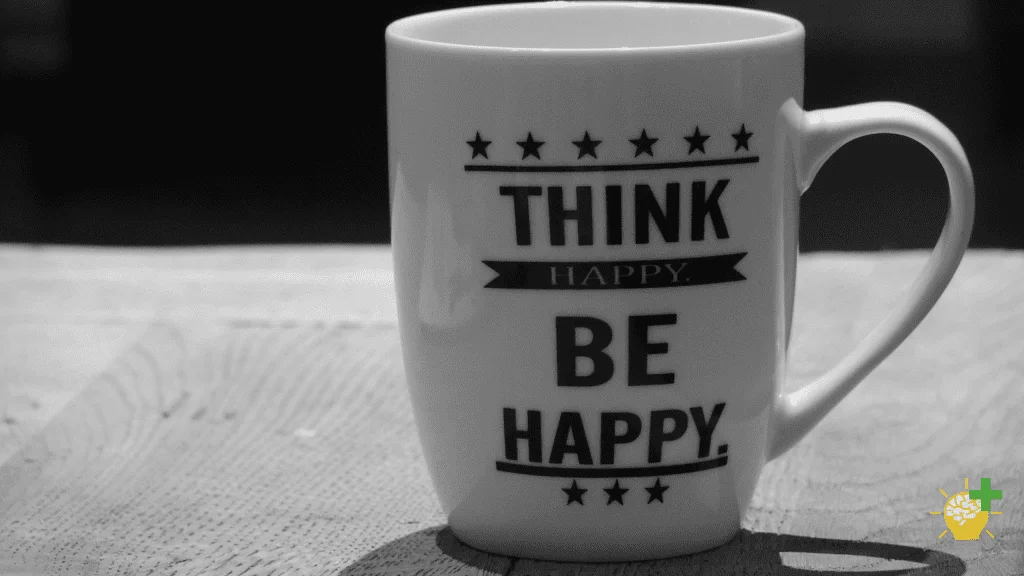No one enjoys a relationship characterized by constant blame. Yet, owning our behaviors and taking responsibility for our actions can be challenging, although most couples know this is the right path to a healthy, happy relationship.
Friction is normal in all relationships, including committed, happy marriages.
However, one or both partners are used to apportioning blame if your relationship is plagued by incessant fights, bickering, and power struggles. Unfortunately, many couples can’t tell blame apart from holding each other accountable.
Here’s the good news.
You can save yourself a ton of heartaches and unnecessary misunderstandings if you learn to distinguish accountability vs blame in relationships.
Ready to make positive changes in your relationship?
Keep reading to learn how owning your behavior and taking responsibility for your actions can reduce conflicts, increase trust and open communication, and make your union more blissful.
What Is Accountability in Relationships?

Taking responsibility in your relationship means being courageous enough to accept your mistakes and be willing to clean up your mess.
Being accountable to yourself and your partner is being bold enough not to sweep your mistakes under the rug or pass the buck.
In addition to not using blame as a means of shying away from owning your mess, you don’t engage in self-blame when things go wrong in your relationship.
You simply acknowledge your role in a problematic situation, apologize genuinely, and focus on finding lasting solutions to the problem.
In other words, being accountable in your relationship is recognizing that mistakes can’t be undone, but partners can learn from them and turn them into opportunities for growth.
Accountability vs Blame in Relationships: Identifying the Major Difference
Sometimes, couples slip into blame without realizing it. Typically, this happens when one person attacks and the other becomes defensive.
But blame can be self-inflicted, where one partner misunderstands personal accountability and beats themselves up for everything that goes wrong in the relationship, whether or not it is their fault.
To help you avoid this confusion, here is the biggest difference between owning your behavior in a relationship versus playing the blame game.
Accountability Is Empowering

Accountability gives you a chance to make positive changes. It allows you to boldly take up the challenge of correcting whatever mistakes you’ve made, especially those affecting your relationship.
Here’s another way of saying it.
Owning your mistakes and taking responsibility for your behavior is empowering! You may feel sorry for your actions (as you should), but that doesn’t lead to harsh self-criticism. Instead, it is an opportunity for self-reflection and self-learning.
Blame Is Disempowering

Blame in whatever form is disempowering ― whether you are blaming someone else or accepting misplaced blame.
And because you feel powerless when blaming, you instinctively switch to a defensive mode to protect your ego from embarrassment, criticism and hurt.
Think about it for a minute.
People lash out, apportion blame, and act defensively when they feel vulnerable, not when they feel invincible.
If you’re playing the blame game, it’s probably because you feel threatened in some way. In relationships, a feeling of threat could arise when one person feels they are not good enough for the other.
Also, if you are blaming yourself (because you assume it is the same as taking ownership of your mistakes), you don’t feel good about yourself. Instead, you wallow in self-pity and focus on your flaws.
In any case, blame makes you the victim in the situation. It takes away your power to bring about positive change in your relationship, leaving you with nothing but to find faults and shift blame.
This applies whether you are blaming your partner or yourself.
To learn more about accepting misplaced blame, check out my post on understanding accountability in relationships.
Here’s a quick rundown of how accountability and blame can affect your physical, mental, and emotional states.
- The difference in physical state: Accountability produces active energy in your body. It motivates you to take action that results in positive changes. In response, your face brightens, and you generally lighten up. Conversely, blame makes even the most intimidating manipulator appear physically feeble because it forces the individual to make weak excuses. In response, the face contours into a frown, leading to an overall gloomy outlook.
- The difference in mental state: When you acknowledge your fault and promise to make positive changes, your brain becomes more receptive to positive suggestions. In most cases, your mind will start looking for ways to overcome your shortcomings and improve your relationship. On the other hand, your mind tends to block helpful suggestions once you choose to take the blame path. In most cases, your mind will start to spin a tale about how things would have been different if your partner would just take the fall for things going wrong in the relationship.
- The difference in emotional state: You feel empowered to make changes in your relationship when you own your mistakes. Remorse doesn’t end up in self-criticism. Instead, it leads to a stronger commitment to doing the right thing. Blame (particularly self-blame) makes you feel bad about yourself; blaming your partner doesn’t make you feel good, either. If anything, it creates emotional distance.
Benefits of Accountability in Relationships

Ever wondered what makes some couples work out the kinks in their relationship while others simply go their separate ways at the first sign of conflict?
Yes, you guessed right: accountability!
You see, happy relationships don’t happen by accident. Relationships thrive when partners own their behavior, acknowledge their mistakes, and commit to bringing positive changes in their union, whether it is a committed one like marriage or they are still in the dating phase.
Taking responsibility for actions, inactions, or behaviors in a relationship makes partners feel heard, seen and valued. And because each partner feels valued, they will naturally give their best to ensure the relationship remains happy.
Another important benefit of being accountable in your relationship is that it encourages open and honest communication. As you probably already know, this sets the stage for increased trust between partners and being vulnerable without fear.
All of these can help improve self-esteem in relationships.
Here’s another huge plus for couples who prioritize accountability in their relationship: It helps them become better individuals.
It takes compassion and empathy to set your ego aside, actively listen to your partner, and see things from their point of view. This is especially true when emotions run high!
Being accountable to yourself and your partner requires continuous introspection. This makes you more self-aware as you learn to overcome your weaknesses and use your strengths to make positive changes in your relationship.
Most importantly, consistently practicing accountability in your relationship will eventually rub off on other areas of your life, making you an emotionally intelligent and well-rounded human being.
Consequences of Blame in Relationships

Being accountable in relationships may seem like a lot of work.
On the flip side, blame is an easy way out; just point the finger and defend yourself whenever your partner calls you out for something you’ve done.
You can make excuses for your behavior or deny doing anything wrong. The problem is: the blame game comes with unpleasant consequences.
First, blame doesn’t give room for character development.
In other words, constantly shifting blame to others when things go wrong shows immaturity. It indicates an unwillingness to take responsibility for your actions because you are more comfortable passing the buck.
Constantly blaming your partner for everything that goes wrong in your relationship indicates abusive behavior. This can negatively affect your partner’s sense of self-worth, make them feel small, erode their trust, and contribute to resentment.
Ultimately, blame can sabotage a relationship as it fosters unhealthy and abusive behaviors. If left unaddressed, it can lead to communication breakdown and the eventual end of the union.
Unfortunately, ending a relationship (because you think the other person is at fault) doesn’t usually solve all your relationship problems ― at least, not if you plan to start dating again after a breakup or divorce.
There’s a high chance you will repeat the same negative cycle with a new partner if you start a new relationship without developing the skills to practice accountability.
7 Ways to Be Accountable in Your Relationship

Having distinguished accountability vs blame in relationships, let’s turn our attention to practical ways to be accountable, particularly in romantic relationships.
1. Practice Effective Communication
Communication is not limited to verbal conversations. It is important to be transparent with your partner and ensure your actions match your intentions.
This is the definition of effective communication in relationships.
Remember, your partner can only hold you accountable when your action aligns with your intentions.
2. Be Open and Honest
Having open and honest talks is one of the most challenging things about accountability in relationships.
However, having these talks are crucial to maintaining the trust and strong emotional connection in relationships, so you should never shy away from difficult conversations.
Be willing to address problems head-on. Talk honestly with your partner when you feel upset about something. The more open and honest conversations you have with your partner, the lesser the chance of letting resentment and tension build up in your relationship.
3. Ask For Feedback From Your Partner
Accountability in relationships requires partners to respect each other’s opinions and feelings.
To practice this with your partner, form the habit of asking what they think about the relationship. This tells your partner that you value their feedback and will do your best to honor their expectations.
Be curious and willing to receive feedback with an open mind.
By asking for feedback, you will see things from your partner’s perspective and understand why they do things in certain ways.
4. Focus On Solving Problems Instead of Fixing Your Partner
Work with your partner to find effective solutions when there is a problem. You might ask, “Any ideas on how we can work things out?” This puts the focus on problem-solving rather than fixing your partner.
Remember, any attempt to fix the other person is a sign of blame, not accountability.
5. Refrain From Showing Negative Emotions
Conflicts are bound to happen in relationships ― that’s a given. However, reacting when you are emotional is likely a sign of blame.
Your partner will likely hear the anger in your voice if you give feedback when emotions run high. This defeats any good intentions you may have. For this reason, it is best to refrain from showing negative emotions when you give feedback.
6. Acknowledge Your Role When Things Go Wrong
Both partners in a relationship often play a part (consciously or unconsciously) when conflicts arise.
Reflect on how your action or inaction contributed to the conflict or situation and acknowledge your role. Sometimes, it can be difficult to see your fault in the heat of the moment. Allow the situation to calm down before doing any introspection.
If you’re open to some honest feedback, ask your partner what they think your part is in the problem. However, make them understand that you are asking because you are working on self-improvement and not because you want to pick a fight.
7. Apologize When You Are Wrong
Be willing to apologize when you make mistakes. Making excuses is the same as shifting blame, so avoid it, no matter how genuine the excuses appear.
A sincere apology means you are deeply sorry for your behavior. But most importantly, it involves promising not to repeat the behavior and finding ways to do better next time.
Accountability vs Blame in Relationships: Which Will You Choose?
Blame is easy.
But it doesn’t make for healthy relationships ― romantic, family, friendship, or workplace relationships.
My recommendation? Choose accountability. Remember, though, accountability is challenging! However, your relationship will be all the better for the extra effort.
As they say, nothing good comes easy. You can make your relationship heaven on earth with consistent practice and patience.




